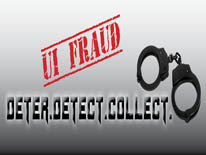

As many of us transition to new schedules and new jobs, we must remember to the necessary steps to inform D.C. Department of Employment Services (DOES) by/through of reporting wages after returning to work, even if it is part time or temporary employment:
Here are the U.S. Department of Labor’s (USDOL) requirements for reporting wages for any claimant receiving unemployment benefits:
Please contact our office if you have questions or need additional information regarding wage reporting after returning to work.
_________________________________Unemployment Insurance provides temporary financial assistance to qualified individuals who meet eligibility requirements of the District of Columbia. Each person who collects Unemployment Insurance benefits is legally responsible for making sure he or she follows the rules set by the District.
Navigating through the UI system can be confusing. Understanding the facts behind these common mistakes or misunderstandings related to UI will help to ensure your continued eligibility for current and future UI benefits.
Not reporting income from part-time or temporary work while looking for a full-time position. You must report your gross wages (before your taxes are taken out) for each week you work and certify for benefits, even if you don’t get paid until later. Be sure to accurately report on all earnings during your weekly claim certification – even those from part-time or temporary work. If you collect more UI benefits than you are eligible for because you fail to report earnings, you may be committing fraud and may be prosecuted.
Waiting until you receive your first paycheck before notifying the state UI office that you have returned to work. As soon as you begin working, be sure to notify your state’s UI office if you plan to continue claiming UI benefits. Do not wait until you receive your first paycheck to report your return to work. The UI agency uses state and national resources to track new hires, so it is in your best interest to report your return to work immediately to avoid the consequences of an overpayment.
Believing that Unemployment benefits are “yours” – which you paid into an account while you were working. Not true. Generally, state payroll taxes paid by employers finance UI benefits and employers are charged accordingly when claimants are determined eligible to collect benefits. That’s why it’s important to ensure that each individual accurately receives the amount of benefits for which he or she qualifies.
Not actively searching for work. You must actively look for work each week that you file a claim for benefits. If you do not search for work during a week in which you file a claim, benefits may be denied until you show that you have started to look for work. Need help creating an effective work search plan? Contact your local Career Center for assistance.
Not being available to accept a new job. In order to collect benefits, you must continually verify that you are able, available, and willing to accept suitable work. Possible conflicts like attending school during work hours or limitations with child care or transportation could limit your work availability and be an eligibility issue. Report such issues on your claim forms.
Everyone who collects Unemployment Insurance benefits is legally responsible for following all rules and reporting regulations. If you knowingly break the rules, you could be found guilty of committing UI fraud, which may lead to a variety of serious consequences, including:
Prosecution by government authorities Possible jail or prison sentences Repaying the UI benefits collected, plus penalties and fines Forfeiting future income tax refunds Losing the eligibility to collect UI benefits in the futureBelieve that you’ve made a mistake? Get help. Contact the Department of Employment Services at 202-724-7000 and ask for help to address the issue.